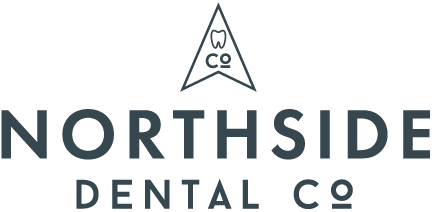Most of us have experienced the uncomfortable feeling of pressure or tightness in our jaw muscles at one point or another. If you frequently clench and grind your teeth, it may be a sign that you’re suffering from bruxism or unconscious teeth grinding. It’s even estimated that up to 30% of the population suffers from bruxism.
If left untreated, bruxism can cause tooth sensitivity, earaches, headaches, and wear down your teeth’s enamel. In severe cases, it can even lead to tooth damage and misalignment.
If you’ve wondered how to stop grinding teeth at night, there’s good news. Treating bruxism is possible with the help of your dentist. Understanding the causes for grinding teeth, what helps grinding teeth, and the available bruxism treatments can help you get relief from this condition.
In this blog, we’ll take a closer look at bruxism and answer some of the most commonly asked questions, including:
- What is bruxism?
- How do I stop bruxism?
- How to stop grinding teeth and clenching jaw muscles at night
- What are the best solutions for teeth grinding?
What Is Bruxism?
Understanding how to quit grinding teeth starts with learning what bruxism is and what causes it. Bruxism is a common condition that involves involuntary grinding of the teeth and clenching of the jaw. For most individuals, bruxism occurs at night during sleep, though it can also happen during the day. Fortunately, there are bruxism treatments that a dentist can offer.
What Causes Bruxism?
While the primary causes for grinding teeth are unknown, certain risk factors can increase the likelihood of developing bruxism:
- Stress or anxiety
- Genetic predisposition
- Misaligned teeth or jaw
- Medication side effects
- Substance abuse
If you have one or more of these risk factors, you may be more likely to develop bruxism or have difficulty stopping teeth grinding. Knowing how to get rid of bruxism requires more than simply changing your lifestyle and habits. Sometimes, professional help is necessary.
What Are The Symptoms Of Bruxism?
There are a variety of reasons why individuals may want to learn how to relax jaws at night and stop their teeth from grinding. Some of the most common symptoms of bruxism include:
- Jaw pain or soreness: Pain or soreness in the jaw can occur, especially after waking up. This is one of the most common symptoms of bruxism.
- Headaches: Headaches are another common symptom of bruxism. The headaches may be dull and constant or throbbing and sporadic. They can occur on one or both sides of the head and may worsen in the morning.
- Earaches: Bruxism can also cause earaches, especially at night. This is due to the pressure from grinding your teeth and clenching your jaw.
- Abnormal tooth wear and sensitivity: If left untreated, bruxism can cause damage to your teeth. As the teeth grind against each other, they can wear down and become increasingly sensitive to hot and cold temperatures.
It’s important to note that some teeth grinders may not exhibit these symptoms. Even if you don’t experience any typical signs of bruxism, it’s still a good idea to consult your dentist and learn how to stop grinding down on teeth for good.
So, what helps grinding teeth stop for good? Here are some of the main treatments your dentist will consider for your bruxism symptoms.
How To Stop Grinding Teeth At Night With Bruxism Treatments
There are a variety of methods that a dentist may use for treating bruxism. Some of the most common include oral splints, special mouthguards, dental corrections, medications, and behavioral therapy. The main goal of each treatment is to reduce teeth grinding and clenching, ultimately alleviating discomfort and protecting your teeth.
Here are some of the primary bruxism treatments dentists may turn to when determining how to stop jaw clenching at night.
1. Occlusal Guards
One of the least invasive ways of stopping teeth grinding is with a dental splint, also known as an occlusal guard. Occlusal guards is like a mouthguard-like piece that creates a barrier between your top and bottom teeth to keep them from grinding against each other. These guards work best if custom-made to fit your mouth, making them more comfortable when learning how to relax your jaw at night.
2. Dental Corrections
Another method for how to stop grinding your teeth at night is to try dental corrections. This typically involves reshaping or repairing your teeth and jaw to be correctly aligned. For example, if you have crooked or crowded teeth, your dentist may refer you to an orthodontist who can realign your teeth. In some cases, minor modifications are enough to reduce teeth grinding.
3. Botox Injections
Most people are familiar with botulinum toxin (Botox) to smooth out wrinkles or plump up lips. But recent studies have shown that Botox’s muscle-relaxing properties can help treat bruxism. Botox temporarily paralyzes the muscles responsible for moving your jaw to reduce clenching and relieve any tension and headaches that you may be experiencing.
4. Behavioral Therapy
Cognitive behavioral therapy is a common form of behavioral therapy that can help individuals manage their anxiety levels and reduce the frequency and intensity of teeth grinding. This therapy typically involves relaxation techniques and lifestyle changes that can help reduce stress and anxiety, which may be the root cause of bruxism.
It’s important to note that there’s no single treatment for bruxism since everyone responds differently to different treatments. Your dentist will work with you to determine how to quit grinding teeth in a safe and lasting way. With the right combination of treatments and lifestyle changes, you can successfully stop grinding your teeth at night and protect your smile.
How Do I Stop Bruxism? Contact Northside Dental Co.
By learning how to stop grinding your teeth, you can maintain good oral health and reduce any potential risks associated with bruxism. With the right combination of treatments and lifestyle changes, you can protect your teeth and enjoy a healthier smile for years to come.
At Northside Dental Co., our experienced team is committed to helping you find relief from bruxism and its associated symptoms. We offer comprehensive treatment plans tailored to meet your individual needs, taking into account your lifestyle, dental history, and overall health.
Book an appointment online to speak with our team about how to stop grinding teeth at night and other bruxism-related treatments.



